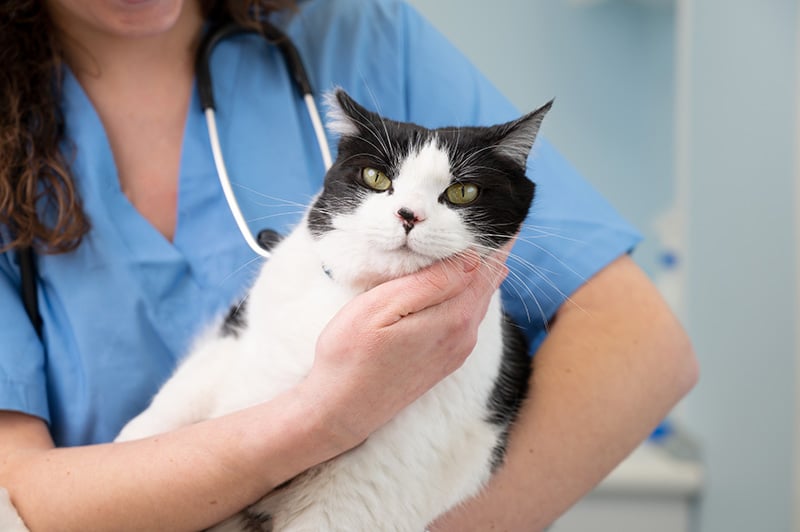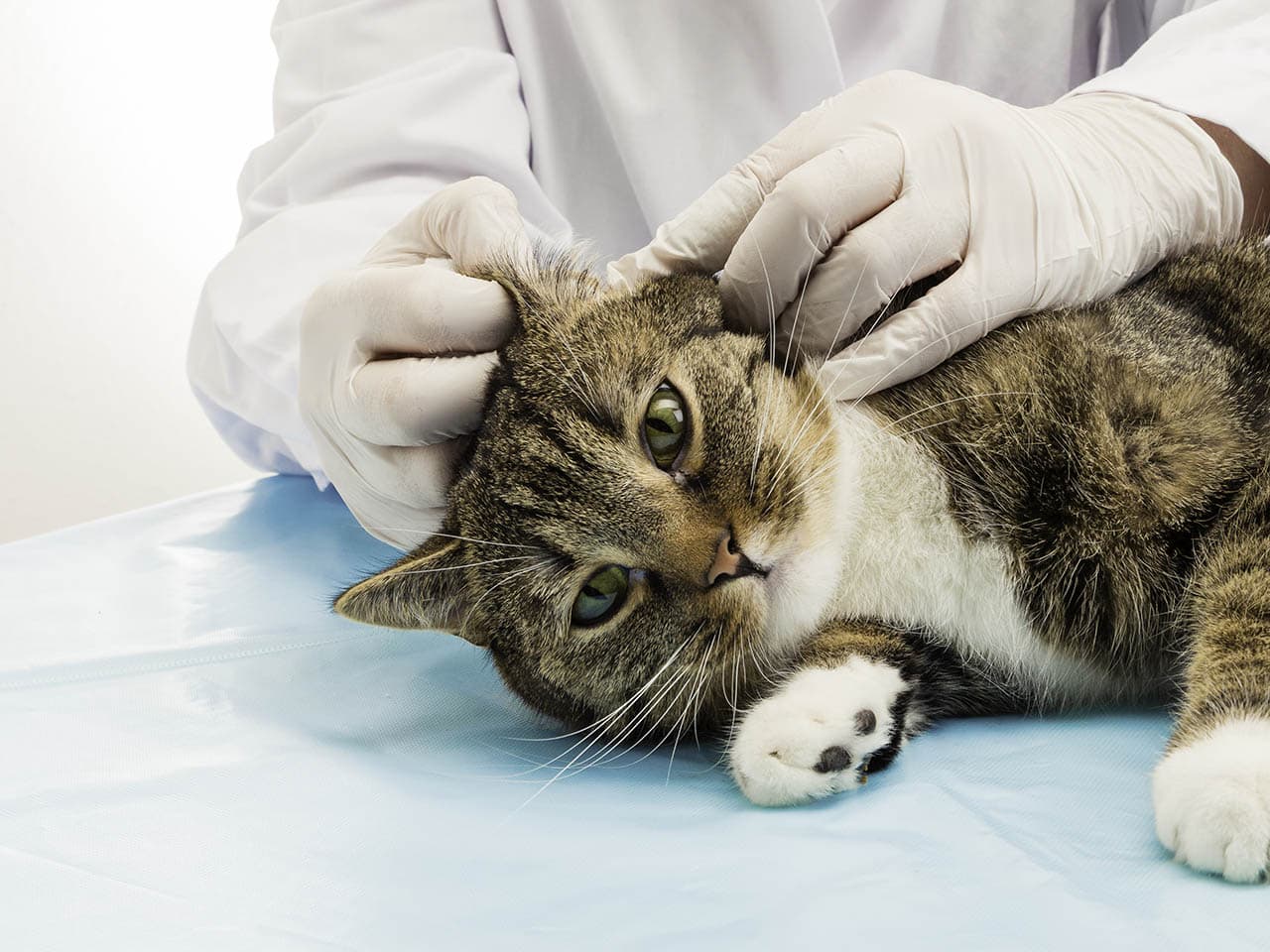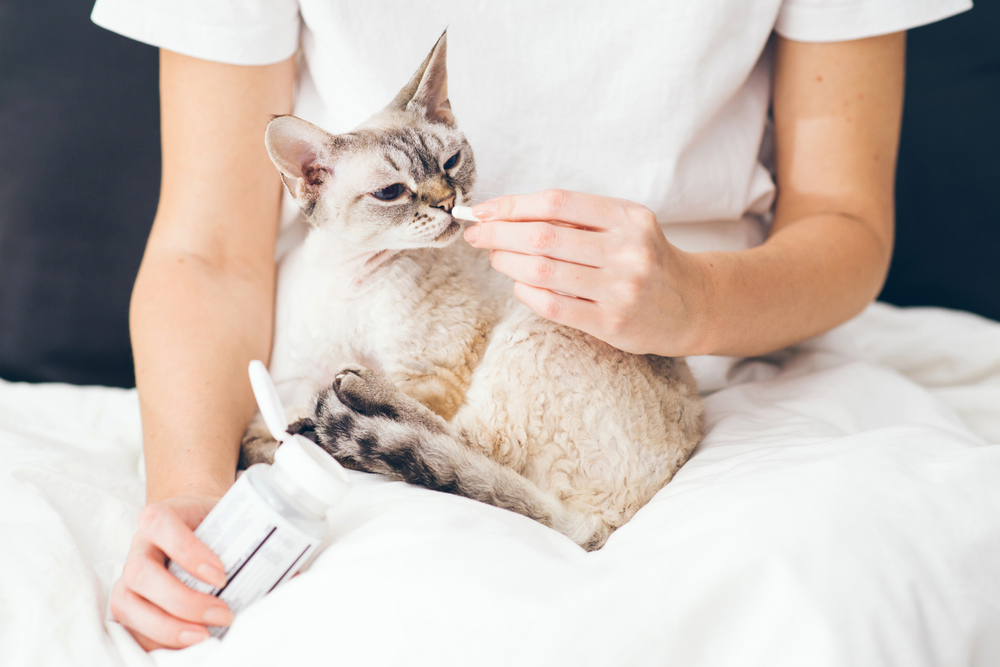Click to Skip Ahead
If you know or suspect that your cat has swallowed a needle, see a veterinarian immediately. Foreign objects, especially sharp ones, can cause many problems, ranging from trauma to the digestive tract to intestinal obstructions, all of which can be life threatening. Sharp objects like needles may carry an increased risk because they can cause a perforation of the digestive tract, which can also be deadly. Seek immediate veterinary care if your cat swallows a needle.
What Happens If a Cat Eats Something Sharp?
A cat’s digestive tract starts at the mouth and ends at the anus. Between those points are the esophagus, stomach, small intestine, and the large intestine. That’s a large area for something to go wrong, especially when a sharp or pointed object is trying to move through.
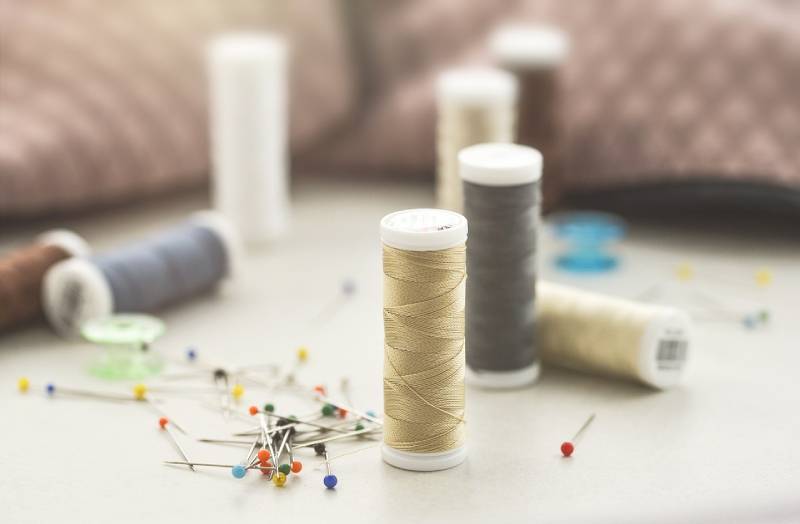
Trauma
Sharp foreign bodies like needles can cause trauma and bleeding, potentially severe, anywhere along the digestive tract. Bleeding in the mouth, throat, or rectum may be visible, while bleeding in the other areas may not be. Instead, you may see signs of internal bleeding, such as:
- Pale gums
- Breathing fast
- Lethargy
- Not eating
Internal bleeding can be incredibly serious, even life threatening, so see your veterinarian if your cat swallowed something that they shouldn’t have, especially if it was sharp.
Perforation
Cats in the wild commonly consume their entire prey, bones and all. They rely on their tough digestive lining to keep bone fragments from causing problems, and it typically does a good job. But that doesn’t mean it should be challenged with sharp objects like needles.
If a needle were to puncture the digestive tract anywhere along its route, it could lead to leakage of the contents. This means bacteria, digestive juices, and other matter can leak into the surrounding abdomen, potentially causing peritonitis and other major issues. Perforation is a serious condition, something that your vet should immediately treat.
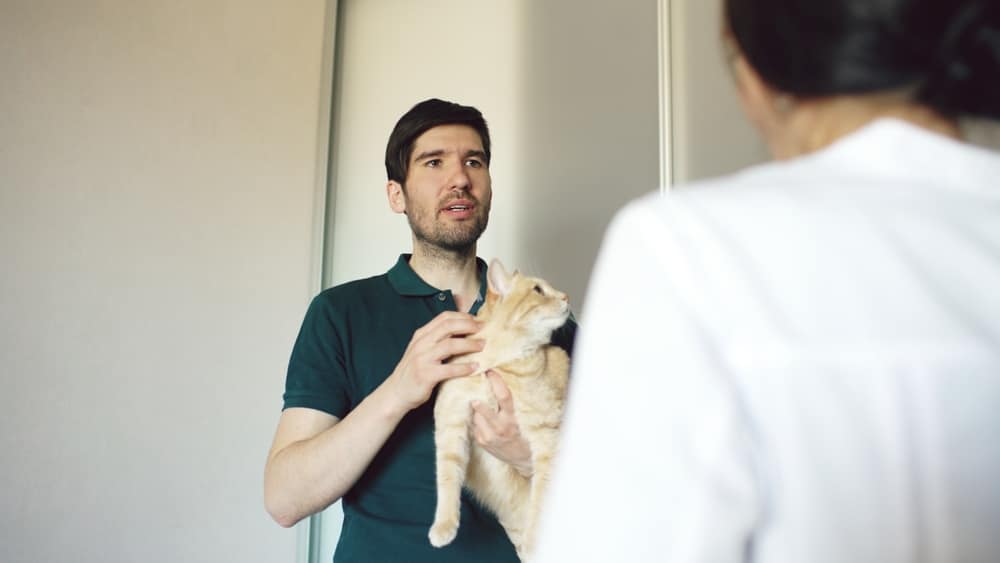
Intestinal Blockage
Here’s an issue that can happen with any foreign object, not just a sharp one. It may seem impossible for a skinny little needle to block a kitty’s intestine, but it’s possible. A needle that’s positioned parallel to the intestines will likely move through just fine, but if it happens to get oriented perpendicularly, it could impede intestinal traffic, creating an intestinal blockage.
This likelihood is even greater if the needle that they swallowed happens to have thread or string still attached. If the thread is long enough, one end can get stuck somewhere higher up in the digestive system, while the other end continues to move through until it runs out of length. The intestines continue to move around the thread, bunching themselves up as they go. The taut string may then slice through the intestines, causing a perforation, or lead to such an intestinal pile-up that no material can move through.
An intestinal blockage is another emergency situation that you’ll want a vet to check for as soon as possible. Watch for signs of:
- Vomiting
- Inappetence
- Lethargy
- Abdominal pain
- Diarrhea/constipation
- Straining to defecate
- Weight loss
Can a Cat Pass a Needle?
A cat swallowing a needle is an emergency and should be seen by a vet right away. That said, your kitty may secretly ingest a needle, and you only know about it when you find it in the litter box a few days later. Basically, it’s possible for a cat to safely pass a needle without any bleeding, perforation, or intestinal blockages, but that doesn’t mean you should necessarily let them try it.
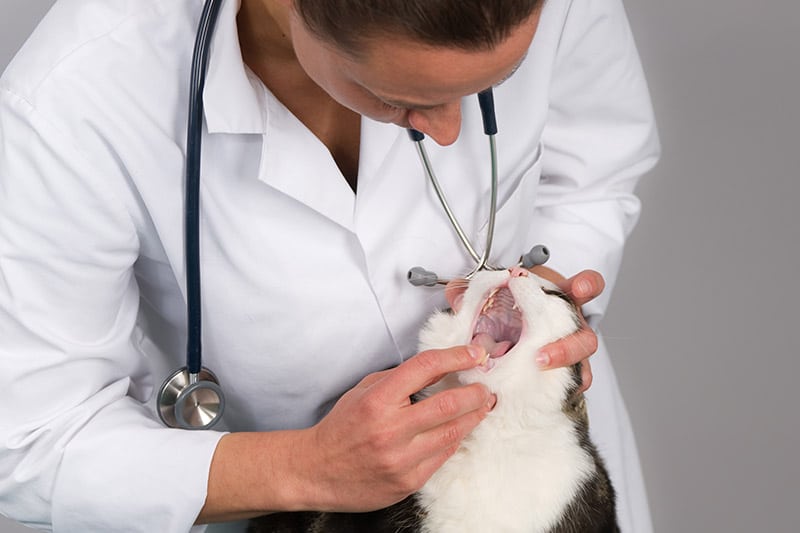
Can a Cat Pass a Piece of String?
Besides the sharpness of the needle, another danger of swallowing this object is if it still has string or thread attached. Linear foreign bodies are common in cats because yarn, string, or even tinsel is provoking to felines, and what starts as a plaything can quickly get consumed. String and thread can string out after getting swallowed, rather than staying in a nice, tight ball. This is what can cause complications if one end gets stuck and the rest of the string continues down the tract.
But that doesn’t mean string is always a problem. Short pieces of string may move through just fine, as well as long pieces that don’t happen to get stuck. This does not mean that you should knowingly let your cat eat string or that you should wait and see what happens if you know that your cat gobbled down a piece of thread. Always seek veterinary care right away to ensure that any swallowed thread or string doesn’t become a problem.
How Can I Help My Cat Pass an Object?
Whether you witnessed it or simply suspect that your cat ate a needle, contact your veterinarian immediately; don’t try anything at home first. The vet will be the best one to determine the next course of action. It may depend on where the needle is in your cat, whether there is a thread, and if your cat is showing any signs.
Endoscopy may be used to safely retrieve needles close to either end of the digestive tract. Your vet may also be able to remove them manually if they’re close enough to the mouth or the anus. In some cases, surgery may be necessary to retrieve needles and/or thread from the digestive inner workings.
If the needle causes a perforation or blockage, surgery may be required to repair the damage. Cats may also need hospitalization to help support them through the surgery and the potential complications of a perforation or obstruction, including internal bleeding or peritonitis.
In other words, a needle can cause major problems for your kitty. Seeking veterinary care as soon as possible can help decrease the likelihood of those problems developing.
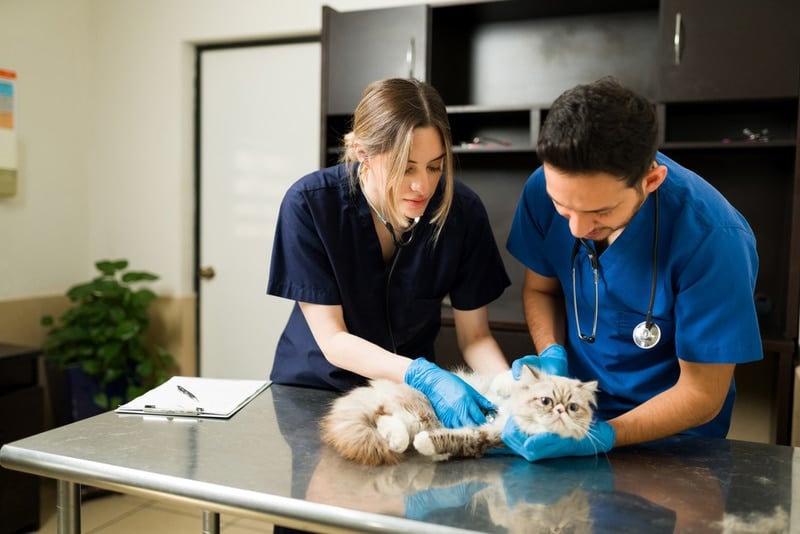
Conclusion
Each of the potential complications of swallowing a needle is considered an emergency. Seeking immediate veterinary care is vital if you know or suspect that your cat swallowed a needle. Stay ahead of the potential issues by seeing a vet rather than waiting and seeing if your cat develops any signs after swallowing a needle.
Featured Image Credit: David Herraez Calzada, Shutterstock

